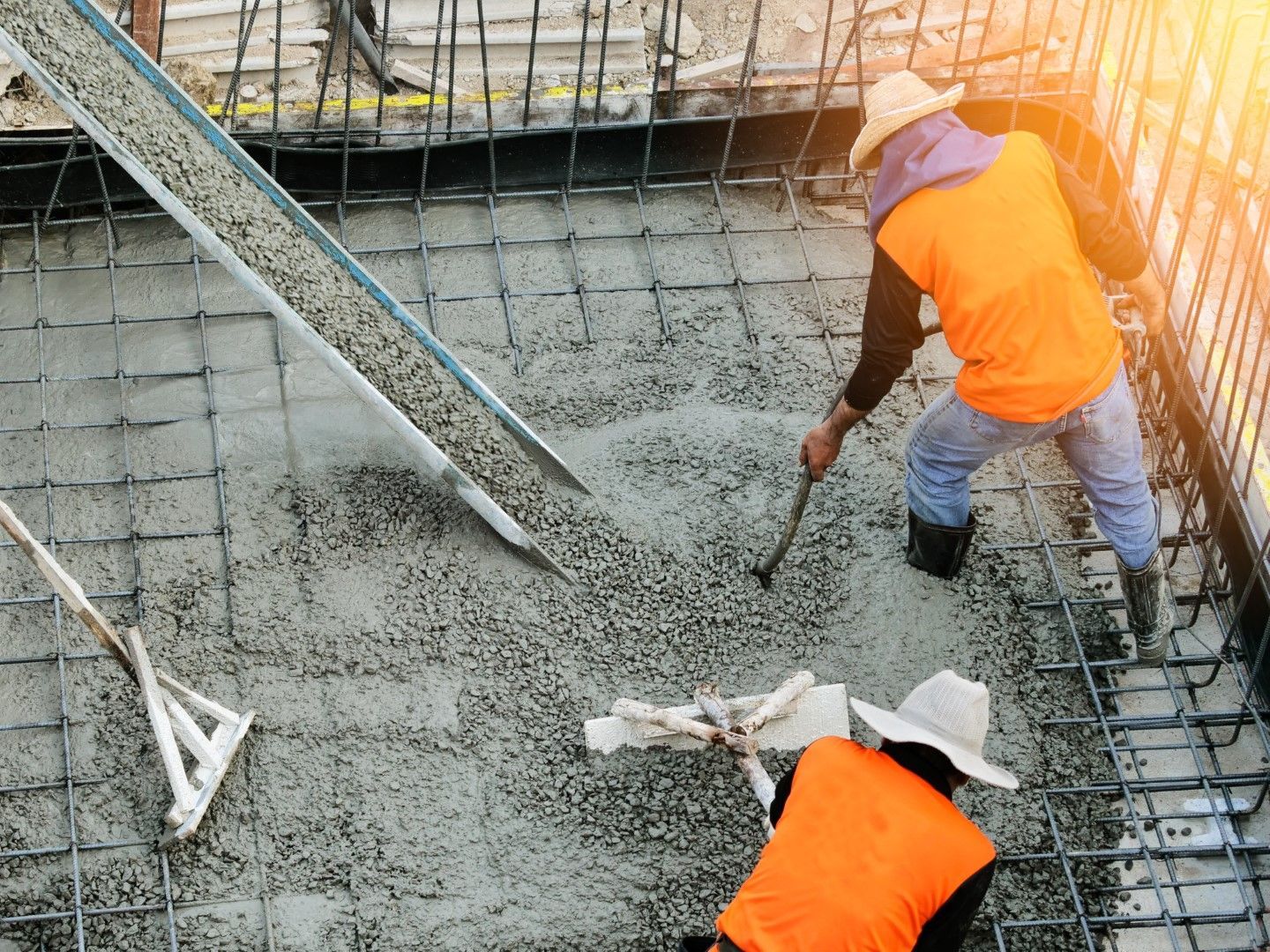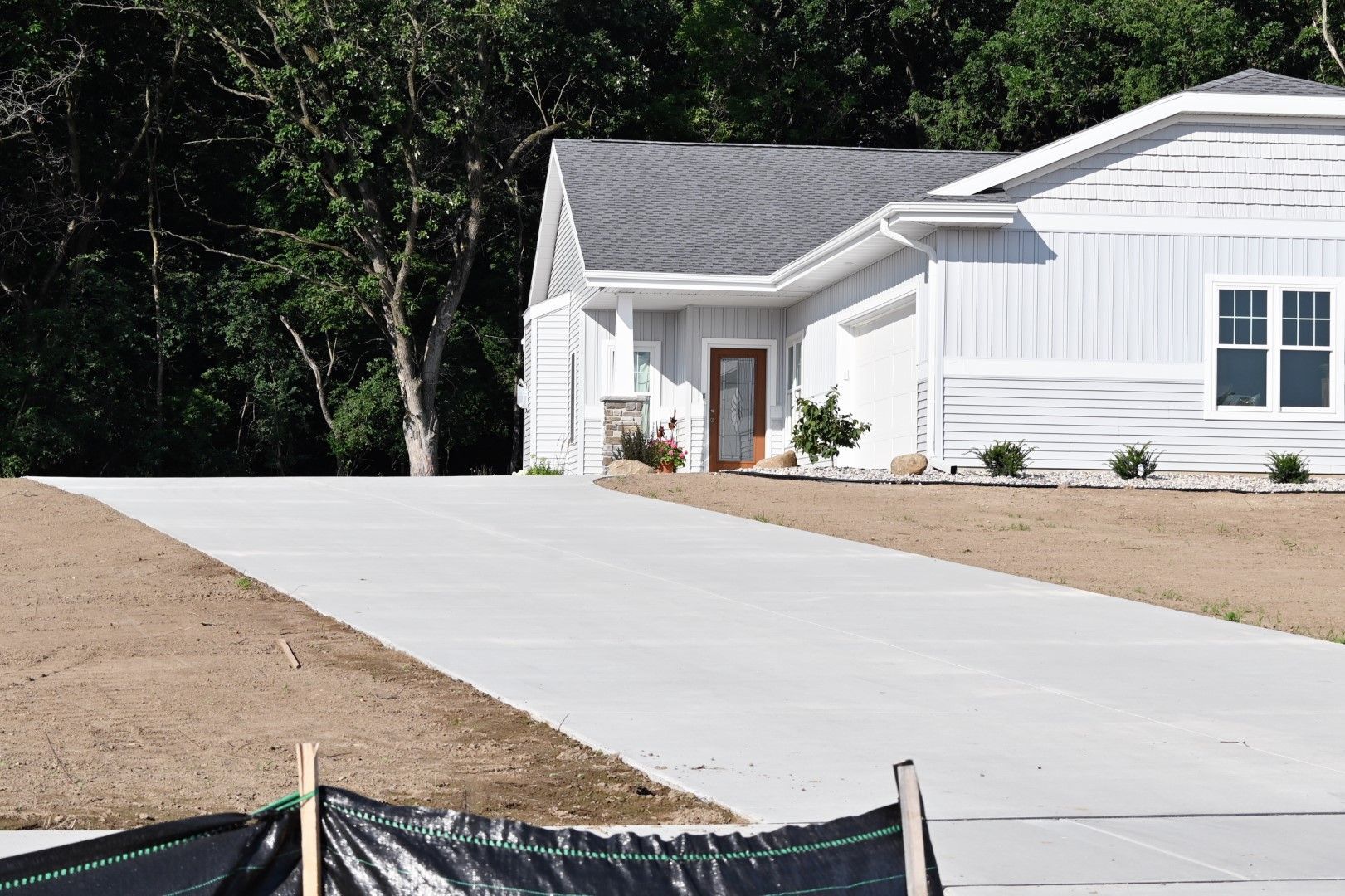10 COMMON CONCRETE QUESTIONS
How Much Does a Concrete Project Cost?
A Homeowner’s Guide
Thinking about a new driveway, patio, or walkway? The first question is usually: “How much will it cost?” Prices vary, but here are the main factors.
Basics of Concrete Pricing
Concrete is usually priced per square foot: $5–$15. Simple slabs like driveways and sidewalks are on the lower end; decorative or thicker options cost more.
Key Cost Factors
1. Size – Larger areas cost more overall but may lower price per foot.
2. Thickness – Standard is 4", but heavy loads may need 6"+.
3. Site Prep – Grading, old concrete removal, or root clearing adds cost.
4. Finishes – Stamping, color, or textures increase labor and price.
5. Local Rates – Labor and material costs differ by region.
Hidden Costs
- Permits – Required in some areas.
- Sealing – Protects concrete but adds a step.
- Drainage – Grading or drains may be needed.
Typical Budgets
- Driveway: $4,000–$10,000
- Patio: $2,500–$7,500
- Walkway: $1,500–$5,000
Final Tip: The cheapest bid may cut corners. A good contractor provides a clear, detailed estimate.
Concrete vs. Asphalt vs. Pavers
Choosing the Right Surface
Concrete
Pros: 30+ year lifespan, decorative options, low upkeep.
Cons: Higher upfront cost, can crack.
Best For: Long-lasting, attractive driveways and patios.
Asphalt
Pros: Cheaper, flexible in freeze-thaw climates, easy repairs.
Cons: 15–20 year lifespan, resealing required, hot in summer.
Best For: Budget driveways in cold regions.
Pavers
Pros: High-end look, easy to replace pieces, customizable.
Cons: Most expensive, weeds/shifting possible, longer install.
Best For: Upscale patios, walkways, and decorative driveways.
Bottom Line:
- On a budget? Asphalt.
- Want longevity with fair cost? Concrete.
- Want premium curb appeal? Pavers.
How Long Does a Concrete Project Take?
Most jobs take 1–2 weeks (not counting scheduling).
1. Estimate & Planning – Usually a few days.
2. Site Prep – 1–3 days for clearing, grading, forms.
3. Pouring – 1 day.
4. Curing – Walkable in 1–2 days, driveable in 7, full strength in 28.
5. Finishes – Stamping, color, sealing add 1–2 days.
Final Tip: Concrete is like bread — quick to make, but time is needed to “rise” and harden.
How Long Will New Concrete Last?
Average Lifespan
- Driveways: 25–30 years
- Patios/Walkways: 30–40 years
- Foundations/Slabs: Decades+
What Impacts Longevity
- Installation quality – Proper base and joints are critical.
- Climate – Freeze-thaw cycles shorten life.
- Loads – Heavy vehicles wear faster.
- Maintenance – Sealing extends durability.
Maintenance Tips
- Seal every 2–3 years.
- Remove salt/chemicals quickly.
- Avoid heavy vehicles on thin slabs.
- Fix cracks early.
When to Replace
- Cracks wider than ½ inch.
- Multiple sinking/heaving spots.
- Severe surface flaking.
- Persistent drainage issues.
Final Thought: With good installation and care, concrete lasts for decades — one of the best home investments.
Preparing for Your Concrete Contractor
1. Clear the Area – Move vehicles, furniture, and grills.
2. Check Utilities – Call for line marking before digging.
3. Notify Neighbors – Avoid surprises if driveways are shared.
4. Secure Pets/Kids – Keep them safe during work.
5. Provide Access – Make room for large trucks.
6. Discuss Weather Plans – Rain/heat may shift the schedule.
Final Tip: A little prep ensures a smooth, stress-free project.
Will My Concrete Crack?
What You Need to Know About Joints and Sealing
Concrete is strong, but it’s natural for it to crack over time. The key is managing where and how cracks form. Contractors use control joints—planned lines cut into the slab—to guide cracking neatly. Without joints, cracks can spread randomly.
Sealing adds another layer of protection. A quality sealer shields concrete from water, salt, and stains while reducing surface cracks. For best results, reseal every 2–3 years, especially in areas with freeze-thaw cycles.
Bottom line: Cracking is normal, but with joints and sealing, it stays minor and manageable.
Do I Need Permits for a Concrete Driveway or Patio?
Homeowners are often surprised to learn permits are required for driveways, patios, or sidewalks. Local codes ensure projects meet safety, drainage, and zoning standards.
Permit costs vary, but they’re usually small compared to fines for skipping them. A reliable contractor can guide you or even handle the paperwork.
Tip: Always check with your town before starting work—it saves time, money, and stress.
How Weather Affects Concrete
Best Time of Year to Pour
Concrete reacts to temperature and moisture. Extreme heat dries it too fast, creating weak spots. Freezing conditions slow curing and risk surface damage.
The best seasons to pour are spring or fall, when temperatures are moderate. In hotter climates, contractors may pour in the early morning or use curing blankets.
Key takeaway: Weather matters. Skilled contractors adjust methods to ensure a long-lasting slab.
Concrete Maintenance 101
How to Protect Your Investment
Concrete can last for decades with simple care:
·Seal regularly – Every 2–3 years protects against water and stains.
·Clean often – Sweep away leaves, dirt, and spills to prevent stains.
·Avoid harsh chemicals – Salt de-icers damage concrete; use safe alternatives.
·Repair small cracks early – Quick fixes prevent bigger problems.
·Watch heavy loads – Avoid parking RVs or oversized trucks on standard slabs.
Final thought: Think of maintenance as insurance. With small, steady care, your concrete will look great and last for decades.


